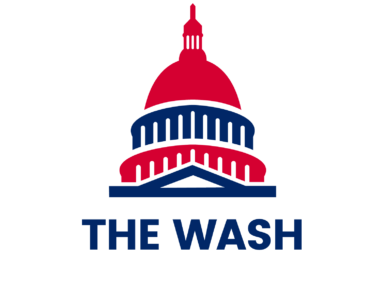In sworn testimony before House impeachment investigators Wednesday, Ambassador Gordon Sondland connected President Donald Trump and his personal attorney in a “quid pro quo” relationship involving access to the White House and politically motivated investigations.
Sondland, the country’s top diplomat to the European Union, said Trump’s personal attorney Rudy Giuliani facilitated a pressure campaign against Ukraine at the “express direction of the president.”
“Was there a ‘quid pro quo?’” he asked, rhetorically. “With regard to the requested White House call and White House meeting, the answer is yes.”
The former businessman told the House intelligence committee that Trump appeared most interested in the Ukrainians publicly announcing investigations into the 2016 U.S. presidential election and an oil company for whom former Vice President Joe Biden’s son worked. The president would leverage the promise of White House meetings and phone calls to get those investigations, he added.
He said he grew to believe that the $400 million in held-up military aid to the former Soviet Bloc country was tied to those investigations as well. The connection was a simple calculation, he said — “two plus two equals four.”
Some Trump campaign officials, WH aides, and GOP lawmakers were “blindsided” by Sondland testimony and “freaking out” earlier today, sources tell @sarahcwestwood and me. One source said Sondland’s testimony was “really bizarre,” adding he was throwing top officials under the bus.
— Jim Acosta (@Acosta) November 20, 2019
Sondland, who earned his diplomatic title after donating $1 million to the Trump inaugural team, provided investigators with text messages and emails that cast the impeachment cloud over Vice President Mike Pence and Secretary of State Mike Pompeo.
They and others were well aware of the administration’s wishes in Ukraine, he said.
“They knew what we were doing and why,” he said. “Everyone was in the loop. It was no secret.”
Wednesday’s testimony promised to intensify an already contentious political climate on Capitol Hill, as Democrats marked the first full week of public impeachment hearings examining the president’s dealings with Ukraine.
Moments after the hearing, Democratic Chair Adam Schiff told reporters Sondland’s testimony was “a very important moment in the history of this inquiry.”
“It goes right to the heart of the issue of bribery as well as other potential high crimes or misdemeanors,” he said.
But Republicans chided Sondland on Wednesday for amending his testimony once already and failing to highlight key defenses.
In particular, Sondland said later he recalled a conversation with Trump during which the president pointedly said there was “no quid pro quo.”
“I want nothing, I want nothing,” Sondland recalled the president saying. “I want no quid pro quo. Tell Zelensky to do the right thing.”
According to Sondland’s testimony, Trump made those comments in early September, just as Congress had become aware of a whistleblower complaint accusing the president of wrongdoing and after the pressure campaign had been launched.
The two world leaders did eventually speak on the phone together, said Rep. Jim Jordan, R-Ohio. The two met in New York and the $400 million in military assistance was eventually delivered.
All of that occurred, Jordan laid out — yet the investigations never did.
“You got all three of them wrong,” Jordan said. “They get the call, they get the meeting, they get the money. It’s not two plus two; it’s (zero) for three. I’ve never seen anything like this.”
Sondland’s testimony was followed by Laura Cooper, special assistant secretary of defense for Russia and Ukraine and David Hale, undersecretary of state for political affairs.
Early in their opening statements Wednesday evening, the two shed more light on how long the Ukranian government suspected that delayed military aid was hinged on the announcement of investigations into Trump’s political opponents.















Add comment